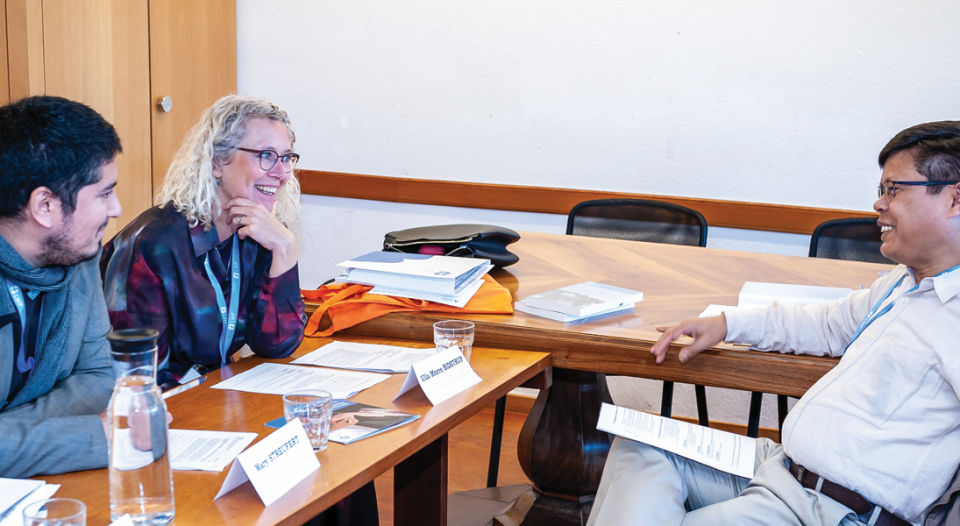The Lutheran World Federation (LWF) is in the final stages of launching a network for theological education and formation. The network, which aims to strengthen the study of theology, facilitate joint reflection and enhance LWF member churches’ existing understanding, will be composed of member church representatives and academicians from teaching institutions across the LWF.
A strategic advisory group of educators, member church theologians and students led the two-year process of forming the network. During their final meeting in Geneva, they shared their impressions.
Ulla Morre Bidstrup of the Evangelical Lutheran Church in Denmark said a direct connection between the Lutheran church and education reform was “no coincidence” since the 16th-century Reformation began with the universities. “The issue from the very beginning of the Lutheran church is that every single Christian is going to be able to study the Bible and meet Christ in the Scripture,” she said.
It’s urgent for the LWF communion to ensure its work is rooted in theological reflection, “not because of ourselves but for our witness and as a reliable voice in the future,” she added.
“Without diminishing our contextual identity, it is very important to cultivate and nurture elements that really unite and give us the identity that we are one as Lutherans.”
The network will map resources and needs, promote mutual sharing and develop theological leaders and educators.
Bruk Ayele Asale, president of the Mekane Yesus Seminary in Ethiopia, emphasized the critical need and potential of this kind of exchange within the LWF’s diverse communion. “Without diminishing our contextual identity, it is very important to cultivate and nurture elements that really unite and give us the identity that we are one as Lutherans.”
Parishioners “are demanding solid theological substance in preaching, Bible study” and other areas of church work, said Songram Basumatary, head of the theology and ethics department at the Gurukul Lutheran Theological College and Research Institute, Chennai, India. Referring to the hundreds of applications the college and others in the region receive annually, he said such demand for theological education should encourage us “to do better together and make our communion stronger.”
Network to foster spiritual growth
Diego Calquin Campos, a student from the Lutheran Church in Chile, said the network’s focus on theological reflection shouldn’t be viewed from the perspective of whether “it is useful for the church” but as “a form of worship that speaks to your heart and helps you see the world with different perspectives.” It should “vigorously give life to the church” and help it resist the temptation to follow unjust narratives, “because the moment the church does that, it becomes contingent and irrelevant for the next generations,” he added.
For Mika Vähäkangas, a professor of missiology at Lund University, Sweden, “every Christian when reading the Bible is a theologian, because you want to eventually have an understanding of what it is that you believe.” Without analysis and debate “our theologies become either very individualized or haphazard,” he added.
Expressing his gratitude to the strategic advisory group for its work launching the network, Chad Rimmer, LWF program executive for identity, communion and formation, noted that joint efforts in theology are one of the LWF’s founding pillars. The upcoming global network will cultivate space “where learners can be equipped to realize their vocation to serve the world that God loves,” he said.
This article first appeared at lutheranworld.org and is abridged and republished with permission.




